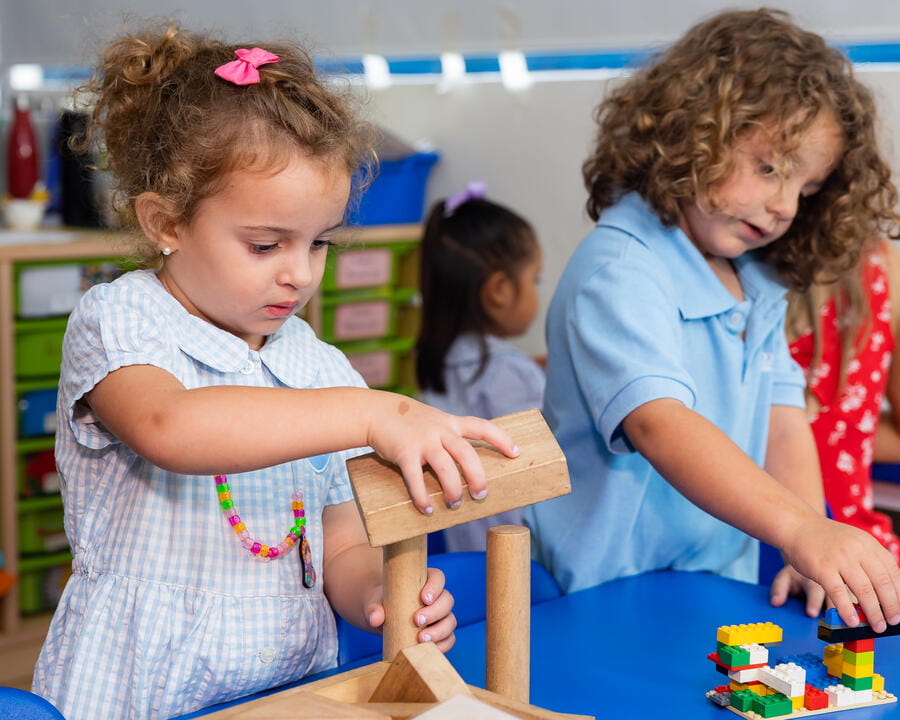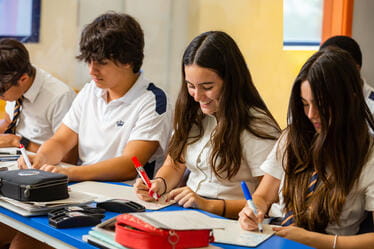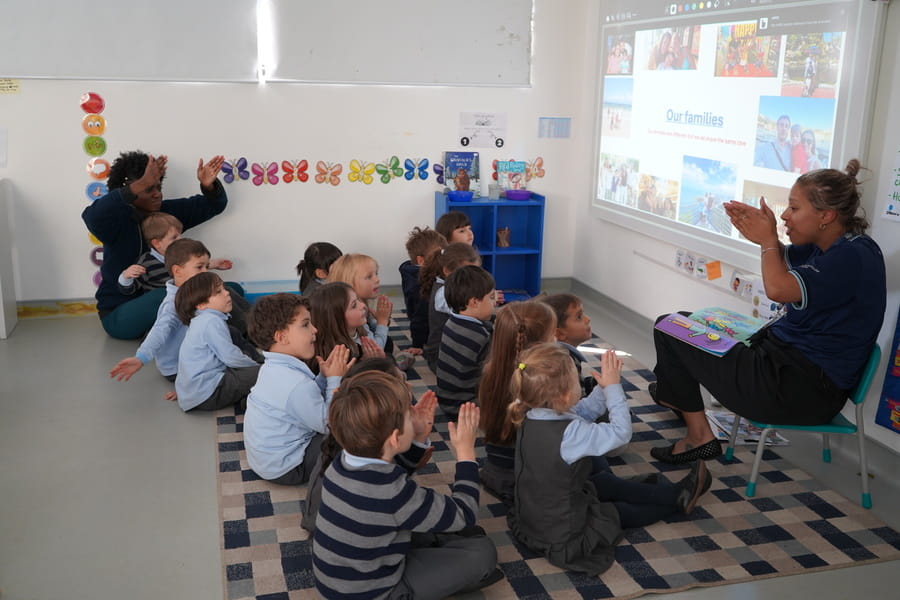

With a rich cultural background—half Dutch, half Trinidadian—Ms. St. Bernard was born in London and spent her formative years in Jamaica, where she attended an international school. Her journey continued at 14 when she moved to The Netherlands to complete her secondary education at the International School of The Hague.

Ms. St. Bernard’s passion for education led her to study for the International Baccalaureate in London, followed by an Early Childhood Studies degree at the University of Lincoln in the UK. She brings five years of teaching experience to BCB, having taught Nursery, Year 1, and Year 2, and completed a Postgraduate Certificate in Education. Her global perspective was further shaped by teaching English in Thailand, participating in the Erasmus programme in Denmark, and studying educational practices in China.
Ms. St. Bernard’s teaching philosophy is captured in her favourite quote: “Children may not remember what you said, but they’ll remember how you made them feel". She is excited to bring her love of learning, travel, and world cultures to her new role. As a global citizen and a ‘Third Culture Kid’ herself, Ms. St. Bernard is looking forward to exploring more of South America and embracing this new adventure.

I caught up with Ms. St. Bernard to ask her for a little more insight into her educational philosophy and teaching style:
Paul McDaniel: I love your favourite quote. Is there a particular daily activity or routine that you use to make children feel special and cared for in your classroom?
Tessa St. Bernard: I feel it is very important to ensure every child is seen and heard, regardless of their background. I have used the ‘shaky hand gang’ before and this helps children form that positive relationship and teachers understand how a child is feeling. A child can choose a fist pump, high five, hello, or a hug.
PM: Are there any ideas or activities that you are looking to introduce to BCB from your last experience working in the UK?
TSB: ‘Dough Disco’ and ‘Squiggle Whilst You Wriggle’ are important in the Early Years. They help to strengthen children’s fine motor muscles, enabling them to develop their pencil grip which in turn helps to develop their writing skills. The ‘Dough Disco’ approach is backed by research and see children squeeze the dough, roll it into a ball or cylinder, and generally manipulate it using their fingers.
‘Squiggle Whilst You Wriggle’ is an early writing programme created by Shonette Bason Wood on which I have had training. It incorporates dance, music and large movements to help children develop the fine muscle control they need for writing. They will learn a new gross motor movement, practising these while holding ‘flappers’ (bits of fabric) and dancing along to music. The children then transfer these movements to the floor and swap their flappers for writing tools (crayons/pens), making marks on paper. They then use the actions to think of letters they can form. It is incredibly fun, motivating and excites the children.
I also feel teaching children in Early Years Makaton (a language programme that uses symbols, signs and speech) is very important. I have achieved levels 1 to 4 in Makaton training and I like to utilise this in the classroom.
.jpg?rev=c446fe06d5fb4236b3fab539609a529e&hash=907D69E346B0965A651378279B969615)
PM: Finally, if you could give parents one piece of advice about supporting their Early Years children in the home, what would it be?
TSB: One piece of advice I would give to parents would be to try and speak positively to and around your children about going to school but acknowledge that your child might feel anxious or nervous about starting. Allow space for that and acknowledge their feelings, saying things like, “It’s okay to be nervous. I can’t wait to hear all about your day when I come and collect you”. This is why it is crucial for all parents to proactively interact with Tapestry and post anything your child does at home, especially any ‘wow’ moments so we can share these with their peers and teachers. Children’s confidence will slowly grow as they adjust to a new environment and routine. I ensure that all children feel a part of our classroom family.
I feel that reading for pleasure is important. I like to show my class my favourite book, ‘Pete the Cat’, and explore it in different ways, for example practically using buttons, creatively by making ‘Petes’, acting out parts of the story and so on. Having a ‘book vote’ is important as this helps children experience key societal values, such as the value of democracy, the rule of law, individual liberty and mutual respect. Young children who vote on what story to read at bedtime or what fruit snack to eat, learn to participate in decision making in their own lives first and then in wider society. The children learn to take responsibility. This can also help with children’s confidence.
Thank you for your insights, Ms. St. Bernard! We are looking forward to a great year ahead working with you and your pupils!